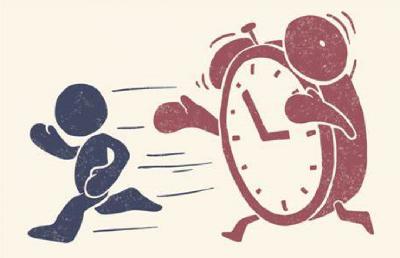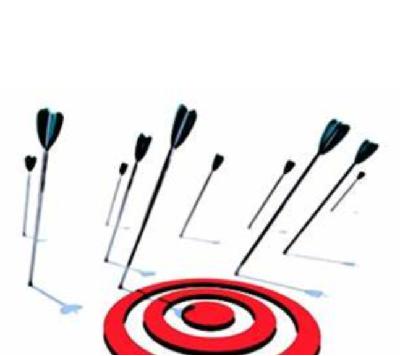Discover JoyChris每日习语
JoyChris每日习语

62 Episodes
Reverse
我们可以查到“rip”是撕、扯的意思,“off”可以被理解为离开,那么”rip off”可以是撕开、扯掉,但是这只是字面意思,口语中它还有其他的用法,我们生活中还有什么情况可以用到这个习语呢?C: Hi guys. I’m Chris. J: And I’m Joy. Today we’ll be looking at the idiom: a rip off. It means that something is not worth as much money as you have to pay for it. Usually you use it to express when something is very expensive. You can use it like this:This is a rip off. / That was a rip off. / Those are rip offs. C: Yup, when you rip something, it means that you are pulling it and tearing it apart suddenly and forcefully. So you can rip papers off of a notebook or you can rip the packaging off of a product. Here in this idiom: a rip off, we are talking about ripping money off of someone, which means it is so expensive that it’s just like they are taking the money away from you forcefully. You can also use it like this: They ripped me off with this new bike I bought. Maybe you just bought a second hand laptop from an online store yesterday. You begin using it but realize that it’s not as good as you thought it was. So you can tell your friend: I bought a laptop yesterday and now I really regret it cuz I think it was a total rip off. J: You know what? I bought a dress online not very long ago. After I wore it for like one time, it started to fall apart already. It was absolutely a rip off. C: Yeah you get what you pay for, right? Now, let’s see how we can use this idiom in a conversation: J: Hey Jay. I see you got a new phone. How’s it handling? C: Oh don’t mention it. It’s really expensive but actually it’s just a rip off. It’s totally not worth it. J: Have you ever been ripped off before? Sometimes it’s better to spend more money to buy quality. C: I believe so. And don’t worry we are not a rip off! So if you need any help with your English, feel free to contact us for our classes. Talk to you next time! Bye!you get what you pay for: 一分钱一分货
我们在和外国人聊天的时候,总会聊到现在和过去的不同,现如今手机已经是人手一部,现如今找工作不是一件容易的事情,我们总会用“nowadays”来表达,不免有点老掉牙了,那还有哪个表达方式可以让你的表达更地道呢?C: Hi guys. I’m Chris. J: And I’m Joy. So today we are learning the idiom: in this day and age. It means the current time in history or at the present time. It’s often used to describe how something has changed and how it happens now. C: Yes, so in this idiom, the words “day” and “age” both mean “now”. People use “in this day and age” to talk about things that happen in modern times. Let’s say you take the subway everyday to go back and forth between work and home. And you realize that everyone on the subway is looking down at their phones. You can talk about it with your friends like this: In this day and age, everyone’s always looking at their phones. J: Maybe you haven’t paid any attention to your English skills in the past couple of years. Now you are applying for new jobs and all of them require a higher English level. You realize that in this day and age, being able to speak English is an essential ability especially in the business world. C: OK, now let’s take a look at a conversation: J: When is the group leaving for Japan, Paul? C: Oh. We won't be traveling. We’ll just discuss the topics for this meeting through a video-conference. J: Sounds great. It’s also more convenient this way and I’m sure it saves the company a lot of money as well. C: Yeah, and in this day and age, I suppose travel is not necessary anymore. J: Have you learned how to use today’s idiom? Don’t forget to practice your English everyday! C: And if you need any help, feel free to contact us for our private English classes. Talk to you next time! Bye!back and forth: 来回来去I suppose: 我想,我觉得
我们可能经常会犯一些错误,有些错误可能直接影响到自己,比如本来想买一件便宜的衣服,结果发现质量超级差,中文里我们也有个比较贴切的俗语是:搬起石头砸自己的脚,英文中也有个非常类似的,我们看看Joy and Chris是怎么用的!C: Hi guys. I’m Chris. J: And I’m Joy. So today we are learning the idiom: shoot yourself in the foot. It means you did or said something foolish that made a situation worse for yourself. You can use it like this:I shot myself in the foot. / You are shooting yourself in the foot. / Don't shoot yourself in the foot. C: So if someone was holding a gun, pointed at their own foot and shot themselves, then it’s their own fault for doing it. We all know about the celebrity Leonardo Dicaprio and his famous movie called Titanic. But he himself did not like the movie. After the movie came out, everyone remembered him as a romantic figure which made it difficult for him to play any other roles. It was after so many years of trying new roles that he was able to change the public opinion about him. So he kind of shot himself in the foot with the movie Titanic. Or sometimes companies try to come up with new products. But maybe the new one doesn’t have what the customers like in the beginning. So it turns out to be a failure and destroys their reputation at the same time. We can call that shooting themselves in the foot. Alright, now let’s take a look at an example: J: Well, did you sell your house yet Jason? C: No, not yet. I’ve had two offers so far but they were both pretty low. But I don’t want to shoot myself in the foot either by passing up these deals. Maybe I won’t get another offer. I’m really conflicted right now. J: Don’t shoot yourself in the foot by just memorizing words and grammar. Just start speaking! C: Exactly! Well guys, if you need our private English classes, feel free to contact us. Talk to you next time! Bye!Titanic: 泰坦尼克号reputation: 名声passing the deals: 错过交易conflicted: 纠结的,矛盾的
你有没有听过Adele的一首歌,叫做”Water Under the Bridge”呢?歌词里面是这样写的:“If you're gonna let me down, let me down gentlyDon't pretend that you don't want meOur love ain't water under the bridge”所以这个习语到底是什么意思呢?听一下Joy and Chris的解释吧!C: Hi guys. I’m Chris. J: And I’m Joy. Today we are looking at the idiom: water under the bridge. It means that a past issue is not important anymore or already forgotten. Usually the event happened a long time ago and you don’t feel upset or worried about it now. You can use it like this:It’s water under the bridge. / It’s all water under the bridge. C: As the saying goes: you cannot step twice in the same river. It means that the water your feet touched has gone away. So the second time you step in it the water has already changed. We can say that once the water in the river flows away, it’s not coming back. Now if we desribe something as water under the bridge, it means that this thing is already in the past and is no longer a source of concern. Now maybe you and your friend had a disagreement one time. After a while you both feel that it’s just water under the bridge now. J: Well, I think, after many years, this epidemic will be water under the bridge. C: Yes, it probably will. OK, let’s see how we can use it in a conversation: J: Do you think the huge mistake I made two years ago will affect this job interview? C: No not at all. In fact, I think it plays into your advantage because it shows how it allowed you to improve further. It’s all water under the bridge anyways so don’t worry about it too much. J: You know, I had a bad experience with a waitress at a coffee shop one time. But she apologized later and now it’s water under the bridge. C: Oh that’s good. Well guys, if you enjoy our channel remember to share it with people you know! Talk to you next time! Bye!a source of concern: 令人担忧/关注的事epidemic: 疫情play into your advantage: 刚好对你有利
你有没有过想做一件事,结果因为太晚了,所以没法完成呢?比如去超市购物,结果因为取得比较晚,你想买的东西已经售罄了,平时大家都会用比较简单的“It’s too late.”,那看看今天的习语是怎样更地道地表达的!C: Hi guys. I’m Chris. J: And I’m Joy. Today we are gonna talk about the idiom: a day late and a dollar short. It means something is too late and too little. Usually it’s because you have waited too long to do something and you are not fully prepared. You can use it like this:I am a day late and a dollar short. / They have always been a day late and a dollar short. / It came a day late and a dollar short. C: Usually, we can say that apologies can come a day late and a dollar short. A day late means the apology came too late. And a dollar short means that you don’t have enough. So because the apology came so late, it is not enough effort to fix the problem. Let’s say, your team member made a huge mistake on a presentation. Your company lost the client because of that. Maybe he still wants to fix it but it’s already a day late and a dollar short. Another idiom that has the same meaning is: too little too late. For example: I wish we could have had this information yesterday but now it’s too little too late. Now let’s see how we can use it in a conversation: J: Hey Mark. Does your company still give you free coffee and breakfast donuts everyday? C: Yeah, they do. I tried to wake up early so I could get some before they are all gone but I was still a day late and a dollar short. J: Actually, I was just a day late and a dollar short yesterday at the store. The cheese I liked was all sold out. C: Oh you better go there early next time! Well guys, if you need our private English classes, feel free to contact us. Talk to you next time! Bye!
昨天我们学到的习语"busy beaver",可以说"busy beaver"们的时间一定经常很紧张,有人可能觉得“时间紧张”也可以用“Time is tight”,这是比较简单的一种用法,那还有其他地道的表达方式吗? C: Hi guys. I’m Chris. J: And I’m Joy. The idiom we’ll be covering today is: pressed for time. It means that someone is in a hurry and has limited amount of time. You can use it like this: I’m pressed for time. / She was pressed for time. / They are gonna be pressed for time. C: So being pressed means that something is pushing on you, giving you pressure. We can understand this as not having enough of something. Maybe you are trying to finish a project. The deadline is tomorrow. But your colleagues ask you if you will be joining them for dinner after work. You might want to tell them: I would love to go but I’m really pressed for time. Or maybe you are in a rush to go to a class. And your friend messages you and wants to chat about something. You can reply: I can’t chat with you right now. I’m on my way to my class and I’m pressed for time. Another way to use this is to talk about money, like: I’m pressed for money right now, meaning that you don’t have enough money. So here’s an example of this idiom: J: Hey Shawn. Could you give me a hand with this please? C: Please make it quick. I’m a little pressed for time. My plane leaves in two hours. J: Oh sure. I just need five minutes. C: Yesterday, we learned the idiom busy beavers. I bet you guys out there who are busy beavers must be pressed for time quite often. J: Yep, I believe so. No matter how busy you are, don’t forget to practice English everyday and follow our channel. Talk to you next time! Bye!
你的生活是不是开始忙碌起来了呢?很多人的工作上现在可能忙着开始新的项目,也有人可能忙着计划接下来该去哪里玩一玩,那在形容自己或者别人超级忙碌的时候,除了用”I’m so busy.”或者”You are so busy.”还有没有其他地道的表达方式呢?C: Hi guys. I’m Chris. J: And I’m Joy. We’ll be talking about another idiom today that is: busy beaver or busy as a beaver. It means that someone is very busy, hardworking or really good at tackling many things at once. You can use it like this: I’ve been a busy beaver. / You really are busy as a beaver. / They are gonna be busy beavers. C: Well we all know that the animal: beaver is always working on building something for its home. They are famous for being extremely industrious. We can use it to describe people for being super busy with something. I’ve heard that some people go to work on weekdays and have a part time job on weekends. They are basically working 7 days a week. You can say: They are busy as beavers. Or when the weekend comes you want to go to a restaurant. You find out that it’s crowded with people. So you can say that the waitors and waitresses are busy beavers. Now we are gonna use the idiom in a conversation: J: Have you finished your monthly report yet John? C: Yeah. Everything’s ready to go. I’ve also reorganized the documents and sent all copies to the department managers. J: That’s great. You’ve been busy as a beaver this month! C: Have you been a busy beaver recently? Don’t forget to practice your English everyday. J: Absolutely! And remember to share our channel with people you know. Talk to you next time! Bye!
今天的习语”put your heads together”,字面的意思看起来好像真的是“把头放在一起”,但是我们想一下如果几个人把头放在一起能产生什么效果呢?你们能猜到这个习语的意思吗?C: Hi guys. I’m Chris. J: And I’m Joy. The idiom we are covering today is: put our heads together. It means to work together in order to come up with an idea or solution. It’s usually used for when you need to discuss or plan something with someone. You can use it like this: Let’s put our heads together. / You need to put your heads together. / They are gonna have to put their heads together. C: Yup, imagine that you have two heads thinking about something. That is two minds working towards it, so the solution would probably come way faster than just one person doing it. There is another idiom that has the same meaning: two heads are better than one. J: Oh, there’s a Chinese equivalent saying to this. It’s 三个臭皮匠顶个诸葛亮. It literally means that three cobblers can be better than one mastermind. C: Yup, so maybe your team needs to plan an event for the company. You feel like it’s better that your colleagues help you brainstorm some ideas. So you can say: Let’s put our heads together on this. Or: I need your help on this cuz two heads are better than one. Now let’s see how we can use it in a conversation: J: Looks like our project just lost the funding. I suppose we can arrange a meeting with the leaders tomorrow and discuss this issue. C: Yeah, I’m sure if we all put our heads together, we can think of ways to find alternative funding sources. J: Are you working on any important tasks? Maybe you need to ask someone for help. Two heads are better than one, you know. C: Definitely! And if you need our private English classes, feel free to contact us. Talk to you next time! Bye!equivalent: 对等的cobblers: 工匠,鞋匠alternative: 可代替的,另外的
在生活和工作中,我们可能会经常被问到自己的想法,尤其在西方文化中”opinions”尤其重要,英语里有很多方式可以表达一些特别强烈或者坚定的看法,我们看一下Joy and Chris是怎么在口语中运用的!C: Hi guys I’m Chris. J: And I’m Joy. Today we are gonna talk about some useful business expressions: I’m absolutely certain that... / I’m convinced that... / I’m 100%(a hundred percent) positive that.... These expressions are usually used to give strong opinions. C: Yup and this is essential for business meetings. Having an independent opinion about something is very important especially in business. So if your boss asks you for ideas or opinions, you can say: Well, I’m absolutely certain that we did better this quarter. Sometimes people like to wait for others to ask for their opinions. But the communication will become very passvie. We need to be more proactive in conversations. After other people have expressed an opinion, you should reply with your view right away, such as: I’m 100% positive that we can complete the tasks on time. Here’s an example of how it can be used in a conversation: J: Well, the first shipment for the new product should arrive in 3 weeks. C: Do you think we are gonna hit our sales target for the first quarter? J: I’m convinced that once people hear about the new features. They’ll see how it’s better than the other products out there. C: Yeah, you’re right. I’ll make sure that marketing will carry out their advertising strategy. J: Well, I’m pretty postive that listening to our channel everyday will help with your English learning! C: I agree. And if you are looking for private English classes, feel free to contact us! Talk to you next time! Bye!this quarter: 这个季度passive: 被动的proactive: 主动的carry out: 实行
你有没有过想要沉下心来,开始认真地做一件事呢?可能你想开始抛开一切,每天认真地听一听英语;或者全心投入去读完一本书;再或者全力以赴地学一项技能……我们听一听Joy and Chris是怎样用英语表达的吧!C: Hi guys. I’m Chris. J: And I’m Joy. The idiom we are covering today is: buckle down. It means to put in a lot of effort toward something and begin to work very seriously at this thing. You can use it like this: I’m buckling down. / She has buckled down. / They are gonna have to buckle down. C: Well, buckling down can be used to express fastening a seat belt. So we can imagine that if you have fastened your seat belt, you are ready to start a journey. And you are taking it very seriously. For students who are in the last year of high school, an important college entrance exam is coming soon. So you really have to buckle down and study hard right now. Or there is a big project for you to complete this month and all of your leaders are very concerned about it. If you don’t buckle down you could lose the client. So you’d better start working on it right away. Now let’s see how we can use it in a conversation: J: Do you have the report ready for the meeting yet Harry? C: I’m still working on it. I know it’s due the day after tomorrow. There’s just a lot of things to cover. J: Well, you’d better buckle down and get it done before the meeting. Otherwise Larry’s gonna go bananas again. C: Yeah, you’re right. I’ll put everything else aside and concentrate on it. J: Are you buckling down to learn English? Feel free to contact us if you need any help! C: And remember to follow our channel everyday and share it with people you know! Talk to you next time! Bye!go bananas: 发疯
你曾经有没有错过好的机会呢?很多人买东西的时候可能错过了超低价,或者错过了某个明星演唱会的票,又或者错过了某个绝佳的工作机会,你是不是很懊恼呢?我们来听一下Joy and Chris用的是哪个习语吧!C: Hi guys. I’m Chris. J: And I’m Joy. The idiom we are talking about today is: miss the boat. It means missing a chance or being too slow to take advantage of an opportunity. Sometimes it can also be: miss the bus. You can use it like this:I missed the boat. / She has missed the bus. / They are gonna miss the boat. C: Well, if you missed the boat, you would have to wait for the next boat. But sometimes in life, there is no next boat. So you might have missed the opportunity for something. Maybe you are applying for a job at a company you really like. But when you are at the interview, you realize your English is not good enough for this job. So the company hired someone else that can communicate flunetly in English instead. You can say that you missed the boat for a good job opportunity. J: Actually, the other day I went to the shopping mall, they had a huge sale going on at the shoe store. I tried on one pair that I really liked but I hesitated and didn’t buy it. The next day I went there and the sale was gone. I totally missed the bus on a great deal. C: Oh that stinks. Now let’s see how we can use it in a conversation: J: Hey Scott. Are you still holding on to your stocks? I think the market is not looking too good right now. C: Yeah, the price dropped so quickly that I missed the boat and didn’t break even. So I sold it at a loss. J: Have you ever missed the boat for anything? I know I have many times. C: Yeah me too. Well, remember to follow our channel and share it with people you know! Talk to you next time! Bye!that stinks: 糟透了break even: 不赚不赔,损益平衡
生活中我们热爱的东西太多了,有人热爱美食,有人热爱健身,还有人热爱学英语,每次一说“热爱啥啥啥”就开始“I love to....”,还有没有更地道的表达方式呢?我们听一下Joy and Chris的对话吧!C: Hi guys. I’m Chris. J: And I’m Joy. Today we’ll be talking about the idiom: eat, sleep and breathe something. It’s used when someone is incredibly enthusiastic about something and they focus all of their energy on that one thing. You can use it like this: I eat, sleep and breathe it. / She eats, sleeps and breathes it. / They ate, slept and breathed it. C: Yup, so if you eat, sleep and breathe something, that means you don’t do anything else but this one thing. It shows that you are really obsessed with it. So some guys are super into watching soccer games, especially the World Cup. It doesn’t matter what time zone it’s held in. Whenever the World Cup starts, they will stay up all night to watch the games. And if they are not watching a game, they are reading some comments and news about it. So we can say that they really eat, sleep and breathe soccer games since the World Cup started. J: They really go crazy for those soccer games. Well, this idiom also has a slightly different version: live and breathe something. You can say: My mom has lived and breathed baking. Here’s an example of the idiom for today: C: Hey Allison. Is this your daughter? J: Yeah, I’m dropping her off at her dance class. She’s been eating, sleeping and breathing ballet recently. C: Well, do you eat, sleep and breathe English everyday? If you do, your English will certainly get better very quickly. J: And don’t forget to follow our channel and share it with people you know! Talk to you next time! Bye!are super into: 特别喜欢做某事drop her off: 送她(指送某人去某地)
很多景点已经在5月1日陆续开放了,这个五一节很多人都憋了好久,北京疫情也降级了,终于可以出去玩一玩,据说降级当天机票预定暴涨了15倍,你有没有心仪的旅行目的地呢?我们来听听Joy and Chris的对话来学习一下怎么用英语聊五一吧!J: Hi guys. I’m Joy.C: And I’m Chris.J: Today is the May Day holiday. Did you know that Chris?C: Oh yeah. What is this holiday all about?J: Well, I think it’s celebrated as an international holiday because many countries in the world have the same holiday. You know, to celebrate for the labor people have done.C: Yeah, there’s a Labor Day in America too. But it’s on the first Monday in September, not on May 1. I think one of the reasons to choose this day is to add a holiday in the long gap between Independence Day and Thanksgiving.J: Right. Independence Day is on July 4 and Thanksgiving is in November. So people can have another holiday to take a break in September, right?C: Yup. On Labor Day, people in America do a lot of Barbequeing, spend time with their family, take short trips and maybe go for a picnic in the park. There might also be fairs going on in town that a lot of people like to go to.J: Sounds pretty cool.C: So what do Chinese people do on this holiday?J: Well, since this is not a traditional Chinese holiday. There’s nothing special that we need to do. Most people just go traveling during this time. This year, the May Day holiday is extended to 5 days including a weekend. So it’s a pretty long holiday if you want to take a trip somewhere.C: The epidemic is getting better here and a lot of parks are open now right?J: Yeah, like the Forbidden City and some other popular spots. You need to book the tickets ahead of time though because it’ll run out probably really soon. Too many people have been stuck at home for so long, they are all looking for a place to go.C: Oh there’ll be flocks of people everywhere for sure.J: Yeah, but the attractions will control the flow of people. There’s a max of how many people can go in on one day. So it shouldn’t be too bad. Although I’m still gonna stay at home just to avoid crowds. I’ve never been big on that.C: The weather has been getting warmer though. It is a really good time to get outside and do some outdoor activities.J: Yeah it is. So guys, hope you are having a great May Day Holiday! And if you like to listen to our channel, remember to share it with your friends and family! Bye!fairs: 市集,展览会(类似国内的庙会)the Forbidden City: 故宫be big on: 喜欢,热爱
生活往往不是完美的,我们身边坚强的人往往是拒绝放弃的,我们说一个人很坚强,可能是这个人几乎从不抱怨,或者选择不去担心,会选择尽力而为,那我们用英语怎样形容这样的人呢?C: Hi guys. I’m Chris. J: And I’m Joy. Today we’ll be covering the idiom: a tough cookie. It’s referring to a strong, confident person who is not easily influenced by other people. Sometimes it can also be: one tough cookie. You can use it like this: I’m a tough cookie. / She was one tough cookie. / They have been tough cookies. C: So when a cookie is very strong and difficult to break, it really is a tough cookie. But here we are using it to describe people. A tough cookie is usually someone who has experienced a hard life. Now, maybe someone has a terrible disease. He has suffered a lot from it but he doesn’t give up. Instead, he fights against it. So you can call this person a tough cookie. Or maybe you are in a negotiation and the other guy is difficult to persuade. So you have to keep trying to convince him of your proposal. You can say that he is one tough cookie. Here’s how we can use it in a conversation: J: I heard that Jenny has been going for her master’s degree. She’s working and studying seven days a week. C: Yeah she told me about that. She doesn’t even have time to rest. I can’t imagine going through all that hard work. She really is one tough cookie! J: Are you a tough cookie when it comes to your English learning? Don’t give up practicing everyday! C: That’s right. And don’t forget to follow our channel and share it with people you know! Talk to you next time! Bye!
我们中文里如果说别人是狗的话,是很难听的,别人听到会觉得受到侮辱,但是在英文中如果听到别人说你是“top dog”可千万不要骂回去,人家这其实是在夸你,那我们怎么用这个习语来称赞别人呢?让Joy and Chris来解释一下吧!C: Hi guys. I’m Chris. J: And I’m Joy. Our idiom for today is: top dog. It’s referring to a person or a group that is more powerful than others and has the most authority. You can use it like this: I was the top dog. / She is the top dog. / They are gonna be the top dog. C: From the literal meaning, we can see that it is the dog on top. So obviously, it’s talking about power or social level. If you meet someone very high up in your company, like your CEO, you can say that he’s the top dog of the company. Or maybe you have a friend. He is very ambitious and he always tells you about his goal of climbing the corporate ladder. You can say that he’s really determined to be the top dog of the corporation. There is also a word that has the exact opposite meaning which is: underdog. It’s talking about the person that has no money or power and is unlikely to win or succeed. For example: He’s always been the underdog in the family. Let’s take a look at a conversation: J: Wow, did you notice that they are opening another Starbucks in the neighborhood? C: Yeah, I heard about that. Well, Starbucks is the top dog when it comes to coffee shops. It’s not surprising that they are buying up all the good locations. J: Are you trying to be the top dog in your industry? Learning English can be essential! C: Exactly. So don’t forget to follow our channel every day and share it with people you know! Talk to you next time! Bye!climbing the corporate ladder: 攀登职场阶梯
面对困难时期,可能有很多公司倒闭了,也有很多人虽然可能与失败只有一步之遥,也还在继续坚持着,挺过难关,那我们如何用英语去表达这种岌岌可危的状态呢?C: Hi guys. I’m Chris. J: And I’m Joy. Today we are gonna talk about the idiom: hang on by your fingernails. It means doing something in a very difficult situation and you are almost gonna fail. You can use it like this: I’m hanging on by my fingernails. / She was hanging on by her fingernails. / They have been hanging on by their fingernails. C: Now, let’s imagine someone went over a cliff. And the only things that are stopping him from falling are his fingernails. That would be a very tough situation. So maybe you had been spending too much money last month on your credit card. You realize that this month you have to pay for the debt but you barely have enough to pay it back. You can say: I’m really hanging on by my fingernails this month. Another good example is that you are working on a project for your company, but you are falling behind on it and not being able to catch up. So you are just hanging on by your fingernails. Here’s an example of how we can use it in a conversation: J: Hey Sam. Did you hear that the stock market has been declining recently? C: Yeah, you are right. They really dropped a lot. The stocks I invested are not doing so well. I’m just barely hanging on by my fingernails. J: Are you hanging on by your fingernails when it comes to your English? You can contact us for our private English classes! C: And if you enjoy our channel remember to share our content with your friends and family! Talk to you next time! Bye!falling behind: 落后,落下了(指不能按时完成)
想象一下,你来到一个新公司,周围的人和事都是你不熟悉的,刚开始的几天可能会有些小尴尬,或者因为不习惯新环境所以你感到不舒服,那么我们要怎么更地道地表达这种感觉呢?C: Hi guys. I’m Chris. J: And I’m Joy. Today we are gonna talk about the idiom: like a fish out of water. It means feeling uncomfortable in a new environment or an unfamiliar situation. You can use it like this: I feel like a fish out of water. / She is like a fish out of water. / They were like fish out of water. C: So, when a fish is out of water, it cannot survive for very long. Since they can’t get oxygen from dry air, you can say it’s something that they are not used to or not familiar with. So if you feel like a fish out of water, you are probably out of place and feel very awkward. Maybe you have just been transferred to a different department in your company. The first couple of days you have not adjusted to your new work yet. So maybe this is making you feel like a fish out of water. Or maybe you are at a party and you are under dressed. Everyone around you is wearing suits and dresses. You can say that you feel like a fish out of water in here. Ok here’s how we can use it in a conversation: J: Hey Logan. How was your trip to Thailand? C: Oh it was really good. At first I felt like a fish out of water because everything was so different down there. But I got used to it pretty quickly. J: Do you feel like a fish out of water when you are learning English? We can help! C: Yep, and as usual, if you enjoy our channel remember to share our content with your friends and family! Talk to you next time! Bye!out of place: 不相称的,不在合适的位置上
在英语中,”sink”是下沉的意思,那么把牙“下沉”到某件东西里,其实是相当于用牙狠狠的咬上去,但是这只是字面的意思,我们说过很多时候不能用中文直译英语中的意思,那这个习语到底是想表达什么意思呢?C: Hi guys. I’m Chris. J: And I’m Joy. Today we are gonna talk about the idiom: sink your teeth into. It means to do something that needs a lot of energy and enthusiasm. You can use it like this: I want to sink my teeth into this. / She really sank her teeth into it. / They are going to sink their teeth into it. C: Well, the literal meaning of this idiom is to bite something. So imagine someone slowly biting into a burger with his teeth. We can call that: he’s sinking his teeth into that burger. This idiom was first used to describe animals that bite deeply and vigorously into food. So maybe recently you just bought a book that is talking about public speaking. You can tell your friend that it’s a great book to sink your teeth into. Or you have put on a little weight and decided to start working out regularly. So you can say: I’ve been sinking my teeth into loosing weight these days. Now let’s see how we can use it in a conversation: J: Hey Brian. You called me earlier today when I was in a meeting. So I couldn’t answer your call. What’s up? C: Yeah, I just wanted to speak with you about the new app that I sank my teeth into developing recently. I was wondering if you were interested in joining me in the project. J: Are you sinking your teeth into learning English? Well, practice makes perfect! C: Yep, and if you like our channel remember to share our content with your friends and family! Talk to you next time! Bye!vigorously: 猛地,起劲地,用力地
有很多事情是我们一心想要做的,比如想申请某所心仪的大学,或者一心想进入某家公司工作,又或者一直都想去某个国家旅行,我们特别想做的事太多太多了,那除了最老套的”I really want to do something”,还有没有其他表达方式呢?我们听听今天Joy and Chris介绍的习语吧!C: Hi guys. I’m Chris. J: And I’m Joy. The idiom we are showing you today is: have one’s heart set on something. It means to want something very much. It’s usually used to express when you desire something or expect something to happen. You can use it like this: I have my heart set on it. / She has had her heart set on it. C: Yup. With this idiom, instead of saying “I really want something”, you can say “I have my heart set on something”. For example, you haven’t traveled for a long time so you’ve saved up some money to go traveling in Europe. You can say that you have your heart set on visiting Europe. J: That’s right. This happens pretty often for me. Once I have my heart set on a new purse, I’ll never forget it until I have it in my closet. C: That’s a good way to use the idiom. Now let’s see how we can use it in a conversation: J: Whoa Aiden, when did you get the new laptop? C: I just bought it on the internet last week. I’ve had my heart set on it for quite a while. They just had a crazy sale last week so I snatched it up. J: Do you have your hearts set on learning English? We are here for you if you need any help! C: Yep, and remember to share our content with your friends and family! Talk to you next time! Bye!snatch it up: 一把抓住,抢购
你有没有过等不及想要去旅游,或者等不及想要去吃某种美食呢?有时候你越是等不及,生活偏偏要让你继续等,那我们可以怎么用更地道的英语描述这种心情呢?我们看看今天的习语吧!C: Hi guys. I’m Chris. J: And I’m Joy. The idiom we are showing you today is: raring to go. It means being very eager, excited or anxious to go somewhere or do something. You can use it like this: I’m raring to go. / She was raring to go. / They have been raring to go. C: This idiom was first used to express a horse standing on its hind legs when it is anxious to get moving. So maybe you spoke in front of your team giving an inspirational speech to get everyone pumped about the new project. Now your whole team is raring to go. Or you see that your colleague has dressed up and got ready way before it’s time to get off work. You can ask: “You seem raring to go. What are you up to?” You can also use: raring to do something, like: I’m raring to get home after 8 hours of work. Or I’m raring to try out my new shoes. Now let’s look at an example in a conversation: J: Hey James. I saw that you’ve just finished your training yesterday. So are you ready for the big day today? C: Oh yeah, I’m totally raring to go! J: Are you raring to get your English level higher? Follow our posts everyday and practice using them! C: Definitely. And if you like our channel share it with people you know! Talk to you next time! Bye!get everyone pumped: 鼓励每个人/给每个人打气
























